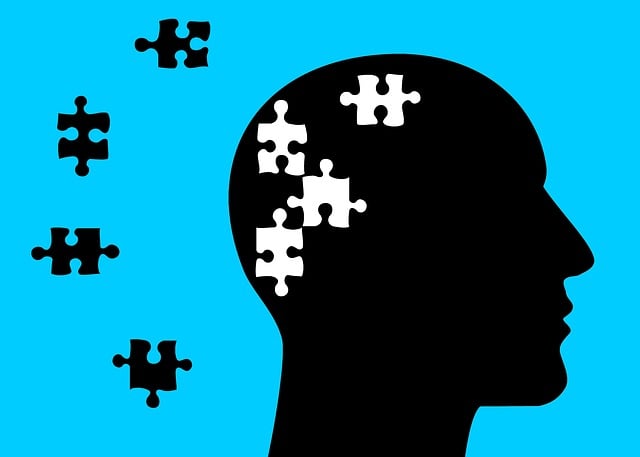Littleton Major Life Transitions Therapy offers evidence-based workshops focused on managing stress during life's transitions, enhancing well-being and resilience. These interactive sessions, led by therapists, combine mindfulness exercises, CBT, and emotional regulation skills training tailored to individual needs. Through community outreach and active engagement, the program fosters mental health awareness and equips participants with practical tools for everyday stress management. Success is measured through participant feedback, attendance rates, and well-being assessments, ensuring continuous improvement and impactful outcomes.
In today’s fast-paced world, stress has become an inevitable part of daily life. The impact of prolonged stress can be detrimental to one’s well-being, making effective management a necessity. This article explores the transformative power of stress management workshops, designed to empower individuals in Littleton and beyond during major life transitions. From understanding stress triggers to interactive facilitation techniques, we provide insights into creating engaging workshops that promote resilience and foster mental health.
- Understanding Stress and Its Impact on Well-being
- The Role of Workshops in Stress Management
- Designing Effective Stress Management Workshops
- Engaging Participants and Facilitating Interactive Sessions
- Measuring Success and Continuous Improvement
Understanding Stress and Its Impact on Well-being

Stress is a pervasive aspect of modern life, often stemming from various sources like work pressures, financial constraints, or major life transitions. In Littleton, Major Life Transitions Therapy recognizes that understanding stress and its effects on well-being is paramount for fostering resilience. Prolonged or severe stress can lead to both physical and mental health issues, impacting overall quality of life.
Workshops focused on stress management aim to equip individuals with coping skills to navigate these challenges. By enhancing emotional intelligence and boosting confidence, these sessions empower participants to better manage stress in their daily lives. This proactive approach is crucial for maintaining a healthy balance, particularly during significant life changes, ensuring individuals can thrive rather than just survive.
The Role of Workshops in Stress Management

Workshops play a pivotal role in stress management, offering a structured and supportive environment to learn and practice coping strategies. They provide individuals with practical tools to navigate through life’s challenges, particularly during major life transitions, as facilitated by therapists in Littleton. Through interactive sessions, participants engage in activities that promote mindfulness, emotional healing processes, and self-care routine development for better mental health. These workshops foster a sense of community, allowing attendees to share experiences, gain insights from others’ journeys, and enhance their overall mental health awareness.
The benefits extend beyond the workshop setting, as individuals equipped with these skills can better manage stress in their daily lives. By addressing underlying emotional issues and integrating self-care practices, participants are empowered to lead more balanced and fulfilling lives. This holistic approach, often tailored to individual needs, ensures that each person leaves the workshop with a deeper understanding of themselves and the resources available to support their mental well-being.
Designing Effective Stress Management Workshops

Effective stress management workshops should be meticulously designed to cater to participants’ diverse needs and backgrounds. A well-structured workshop in Littleton Major Life Transitions Therapy begins with a thorough assessment of attendees’ current stress levels, triggers, and coping mechanisms. Facilitators can utilize this information to tailor activities, ensuring relevance and engagement. Incorporating evidence-based techniques like mindfulness exercises, cognitive behavioral therapy (CBT) strategies, and emotional regulation skills training can significantly enhance the workshop’s impact.
The curriculum should also focus on fostering inner strength development by teaching participants practical tools for stress prevention and management. This includes promoting healthy lifestyle choices, such as regular exercise, adequate sleep, and proper nutrition, alongside mental health policy analysis and advocacy techniques to create supportive environments at work and home. By balancing theoretical knowledge with interactive, hands-on activities, these workshops can empower individuals to navigate life’s challenges more effectively, enhancing their overall well-being and resilience.
Engaging Participants and Facilitating Interactive Sessions

Engaging participants and facilitating interactive sessions are key components for successful stress management workshops. At our Littleton Major Life Transitions Therapy center, we understand that effective therapy requires active involvement from all attendees. To achieve this, we design our workshops to be highly interactive, incorporating a mix of exercises, group discussions, and role-playing scenarios that encourage open communication and shared learning experiences.
Our approach leverages the power of community outreach program implementation and public awareness campaigns development to attract participants from diverse backgrounds. By fostering an inclusive environment, we ensure that everyone feels comfortable sharing their experiences and insights. These interactive sessions not only enhance mental wellness but also provide practical tools and strategies for managing stress effectively in everyday life.
Measuring Success and Continuous Improvement

Measuring success is a vital aspect of any workshop series, especially when addressing sensitive topics like major life transitions and mental health. The organization should establish clear goals and outcomes for each session, aligning them with the overall mission to provide effective therapy and support. By evaluating participant feedback, tracking attendance rates, and measuring changes in emotional well-being through pre and post-workshop assessments, the program’s effectiveness can be accurately gauged. This data-driven approach allows for continuous improvement, ensuring that the workshops remain relevant and impactful.
For instance, incorporating Mental Health Education Programs Design elements, such as interactive activities and group discussions, can enhance learning outcomes. Through empathy building strategies, participants can develop a deeper understanding of their peers’ experiences during major life transitions, fostering a supportive environment. By regularly reviewing and adapting the workshop content based on these insights, organizations like Littleton Major Life Transitions Therapy can offer ever-evolving resources that cater to the changing needs of its clients.
Stress management workshops play a pivotal role in helping individuals navigate life’s challenges, offering a powerful tool for enhancing well-being. By understanding stress and its impact, these workshops provide practical strategies for coping with various life transitions. Through engaging interactions and continuous improvement, participants in Littleton Major Life Transitions Therapy can gain resilience and thrive amidst adversity. This structured approach ensures that individuals leave the workshops equipped with valuable skills to manage stress effectively, fostering a healthier and more balanced lifestyle.









